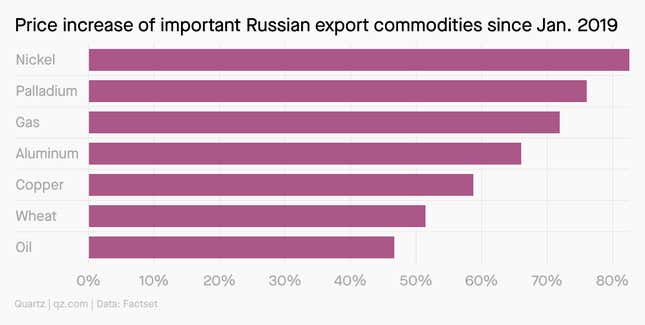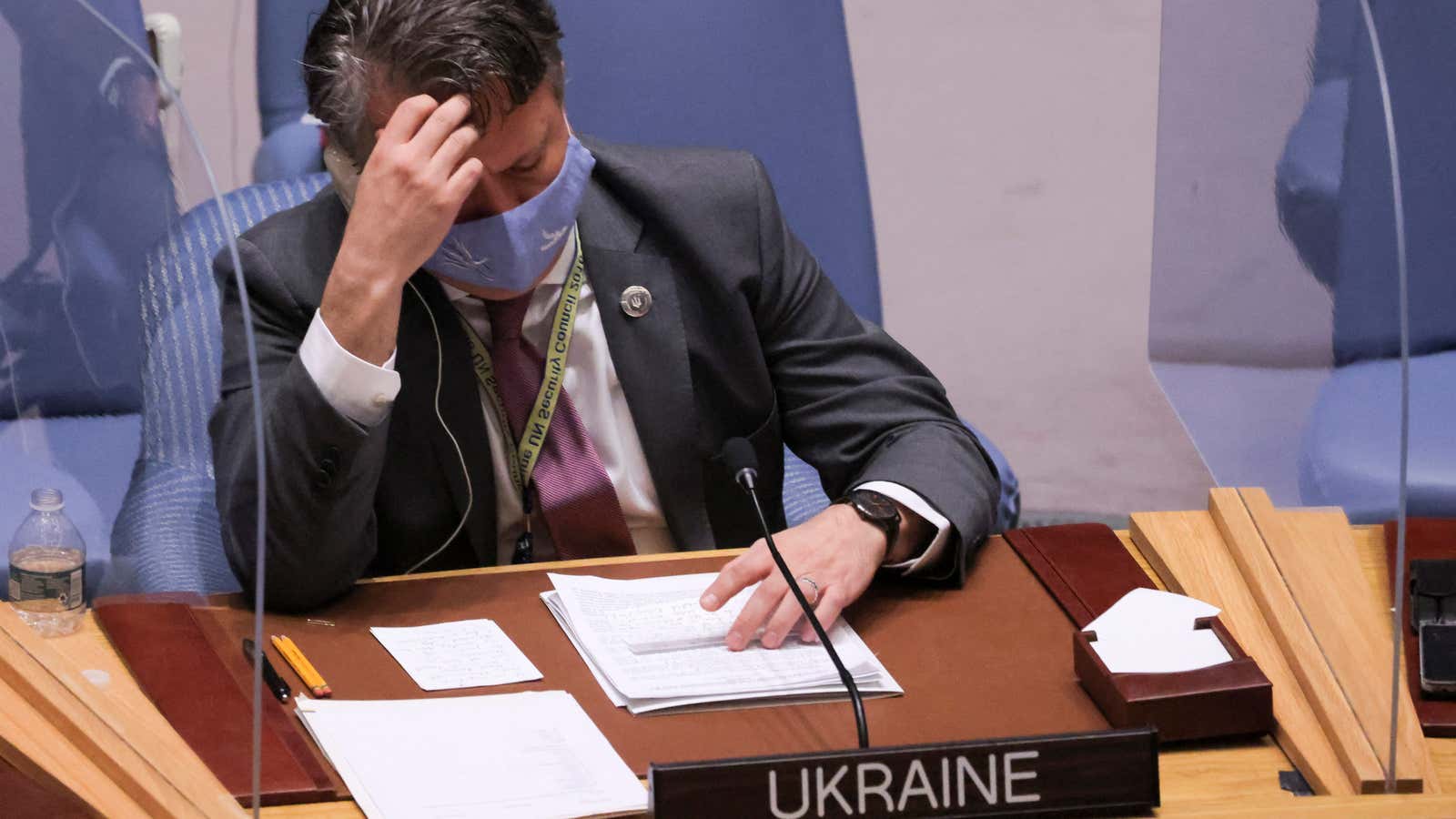Good morning, Quartz readers!
Was this newsletter forwarded to you? Sign up here. Forward to a friend who’s thinking about retirement.
Here’s what you need to know
The US and UK are prepared to punish Vladimir Putin’s allies… If Russia invades Ukraine, the White House has a list of individuals to sanction. Meanwhile, the US and Russia used the UN Security Council meeting as a debate floor.
…and imposed new sanctions in Myanmar. Canada joined the US and the UK in blacklisting seven individuals and two corporate entities to mark the first anniversary of the country’s military coup.
Spotify and Joe Rogan promised to rein in vaccine misinformation. As more artists and podcasters back away from the streaming service, Spotify said it will add content advisory warnings to podcasts that discuss covid. Spotify’s shares rebounded on the news.
India unveils its new budget today. With an eye on upcoming state elections, the government is expected to announce heavy spending on infrastructure and welfare measures—and perhaps a “covid surcharge.”
Sony will buy game-maker Bungie. Giving itself a major boost in its battle with Microsoft, the Playstation maker will own the studio behind Halo in a $3.6 billion deal.
The Downing Street partygate report is in. The much-anticipated civil investigation found that social events during lockdown in the British prime minister’s office and residence were “difficult to justify.”
It’s the year of the Water Tiger. Lunar New Year officially kicks off, albeit in a muted fashion, thanks to omicron. US legislators, meanwhile, have introduced a bill that would make it a federal holiday.
What to watch for
Today, Starbucks releases its first earnings since two of its stores in Buffalo, New York, voted to unionize. The victory for workers has encouraged more than 50 other stores, from Baltimore to Oakland, to file petitions with the National Labor Relations Board to unionize, suggesting that baristas feel they have an upper hand.
While the giant coffee chain has positioned itself as a progressive employer, Starbucks has not been sympathetic to these organizing efforts. The company, a leader on benefits and pay, has allegedly told workers not to unionize and flooded stores with executives to host “listening sessions” with employees. Starbucks has also announced it will raise average wages to $17 an hour by mid-2022.
The rising tensions with employees may help explain why Starbucks is focusing its efforts on growing stores internationally (pdf)—with most of the 2,000 new locations in 2022 opening outside the US—where costs are a lot lower.
The global cost of Russian sanctions
Analysts fear financial sanctions against Russia would likely dampen exports at a time when supplies for most commodities are already constrained, inflation is rising, and prices are already high. Price tags for several of the country’s most important exports are already much higher than they were before the pandemic.

Russia’s exports of fossil fuels, metals, wheat, and other key commodities are critical to many global supply chains; the country produces 43% of the world’s palladium, for example, a metal crucial for car engines. If the US and UK are forced to follow through on their threats, the economic pain will be shared widely beyond Russia’s borders.
Are the kids alright?
Two years into the pandemic, both parents and policymakers are wondering: “Are the kids going to be alright?” Experts say the answer is, mostly, yes. But the mental health of today’s kids will also depend on how we confront looming societal threats like income inequality and climate change—and how much the world invests in the slow and steady march of public health. ✦ Try a seven-day free trial of Quartz membership for access to all of our member-exclusive emails.
Handpicked Quartz
🤰 Rihanna is pregnant. Is a Fenty maternity line next?
🧹 Decluttering was a mistake for Bed Bath and Beyond
🚗 Why isn’t India fulfilling Elon Musk’s wish for a tax cut?
🔍 The pros and cons of salary transparency
🚦 Why Binance has restricted some Nigerian accounts
🐈 China needs its population to have more kids. They’re adding pets instead.
Surprising discoveries
China’s Zhu Rong rover has a selfie stick. If you were on Mars, you’d take pictures of yourself, too.
Polar bears have moved into an unused Arctic weather station. They like to look out the windows.
Maus is topping the charts. After a Tennessee school board banned Art Spiegelman’s graphic novel about the Holocaust, it claimed the first spot on Amazon’s bestseller list.
Elon Musk is in negotiations with a Florida teenager. The Tesla owner offered $5,000 to shut down a Twitter account that tracks his private jet, but the student countered with $50,000.
You reclaim six hours a week when you work from home. Unfortunately, you spend three of those extra hours working.
Our best wishes for a productive day. Send any news, comments, polar bear window portraits, and space selfies to hi@qz.com. Get the most out of Quartz by downloading our iOS app and becoming a member. Today’s Daily Brief was brought to you by Michelle Cheng, Tim McDonnell, Lila MacLellan, Susan Howson, and Liz Webber.
